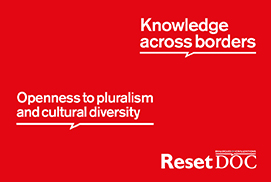13 May 2013
Claiming that reason and our normative concepts change together with the human practices and the challenges that the human condition and social reality are positing, Zygmunt Bauman maintains that politics today has to accommodate the fact of multiculturalism brought about by globalization. Given the changing patterns of global migration, diasporas and communities nowadays extend over many sovereign territories and bring to the political agenda the issue of ‘art of living with a difference’. The challenge we are facing is to balance the yearning for individual freedom of self-creation with its in-built inconclusiveness, uncertainty, hesitation and contradictions under the liquid-modern conditions with the equally strong desire of security that only communities can offer. The answer to this challenge is the creation of a truly global public space, in which we can renegotiate our multiple identities and restructure networks on the basis of global interdependencies and interactions.



